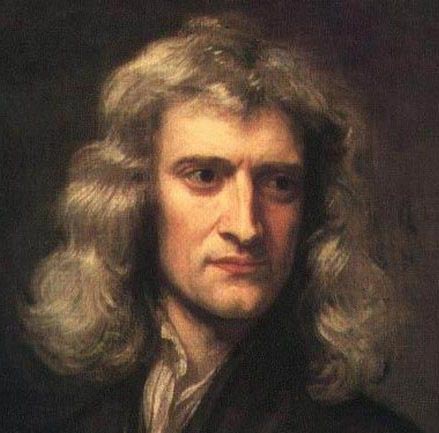Winged words about genius Isaac Newton
Celebrating the birthday (January 4, 1643), the physicist, mathematician, astronomer . the great Isaac Newton, we respectfully quote some of the world's leading scientists in Nearly three centuries said about him. All like honoring: Newton is a superlative scientist.

Isaac Newton (1642-1727)
Laplace, a famous French astronomer: The Principle of Mathematics (Newton's work for life) 'transcends all other works of human genius'.
Lagrange, the famous mathematician: 'Newton is a great genius like never before.'
The eminent American astronomer WW Campbell: 'For me, not only Isaac Newton is a great man of the Department of Physics but also a unique person who discovered the Department of Astrophysics'.
Stanley Cohen (Hoa Sinh winner of the Nobel Prize in 1986) wrote: 'Newton's great success was attributed to the work of senior scientists. Previously Newton, Descartes and Fernat invented the calculus of Geometry, Oughtred, Harriot and Wallis developed Algebra, Kepler found the law of motion, Galileo found the law of speed and determined that : a movement can split into many independent components (for example, a flying bullet consists of a steady advance forward and a falling speed that increases as if a heavy object falls). But the recent work of the scholars is only the preparation factor for Newton's great mind to make a 'synthesis' to explicitly demonstrate that the universe moves according to mathematical laws' .
Jean: 'At that time, the world was in need of a person who was able to systematize, synthesize and deploy mathematical works that were holistic, and that person was a genius Newton'.
James Jeans (British physicist, astronomer, and mathematician) commented: "Newton's principles are only backward for a very small part of modern science. When astronomers want to write The usual articles about aviation problems or want to discuss the movement of planets, they just need to use Newton's theories, building bridges, building ships, locomotives and cars still use old knowledge, and so Newton's theory has not changed.
Where electrical engineers repair phones or design power plants are similar. Applied science in everyday life is still completely science based on Newton's work. It was his transcendental mind that brought science into its path, and anyone who knew Newton's method had to believe that those methods would certainly lead us to find the truth about science. '

Apple tree in Woolsthorpe estate, Lincolnshire county, England.Scientific genius Isaac Newton developed the Law of All Things after seeing an apple fall from this tree.Currently it has been nearly 350 years old - Photo: Telegraph .
Einstein: 'For Newton, creation is an open book that he can easily read. In Newton people saw a combination of experimentalists, theorists, mechanics and he was an artist when he displayed his thoughts'.
Newton himself remarked: 'I do not know what people say to me as a person? But personally, I saw that I was just a child playing on the beach, occasionally discovering a smooth pebble, a beautiful seashell, while in front of me there was a vast ocean full of Unexplored secrets'.
Isaac Newton is a British physicist, astronomer, natural philosopher and great mathematician. According to the Gregorian calendar, he was born on January 4, 1643 (according to the Calendar, December 25, 1642) and died March 31, 1727. His treatise on the Mathematical Principles of the Philosophy of Natural Exports In 1687, the description of the fascinating universe and the three Newton's laws, considered to be the basis of classical mechanics, dominated the concept of physics and science during the next three centuries. He argued that the movement of objects on the ground and objects in the sky is governed by the same natural laws.
In mechanics, Newton introduced the principle of momentum conservation (inertia conservation). In optics, he discovered light dispersion, explaining how white light through prisms became multicolored.
In mathematics, Newton and Gottfried Leibniz developed differential and integral calculus. He also introduced the general Newton binomial.
- 10 famous Isaac Newton inventions
- Dubbed the genius, Isaac Newton also broke the battle on the stock exchange
- Isaac Newton predicted the world would end in 2060
- Newton worked for the British economy
- How does the brains of geniuses work? (first)
- Video: Challenge the god of death to prove Newton's law
- Isaac Newton
- Revealed Isaac Newton's first mathematical manuscript
- 'Flying fish' almost caused Isaac Newton to be unemployed
- Why easy deranged genius?
- Who is the greatest genius of all time?
- Video: Explain three Newton's laws by bike
 The most famous scientific failures in history
The most famous scientific failures in history Mysterious genius mechanic and the machine froze time
Mysterious genius mechanic and the machine froze time The son carries the 'bad gene' of genius Albert Einstein
The son carries the 'bad gene' of genius Albert Einstein Isaac Newton
Isaac Newton